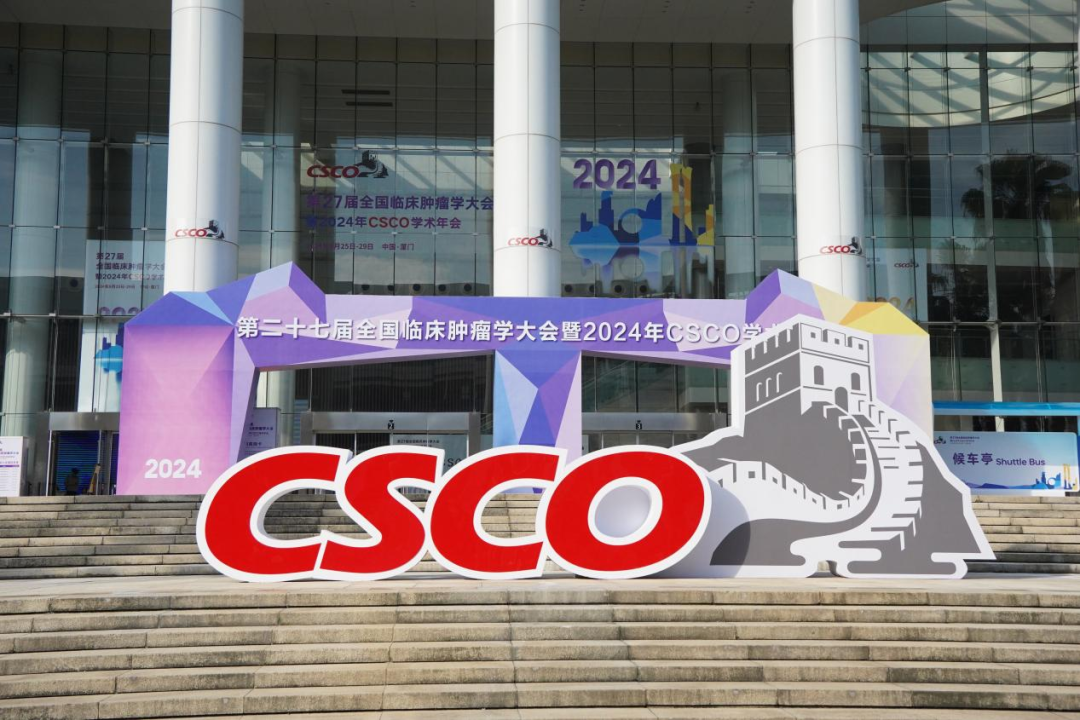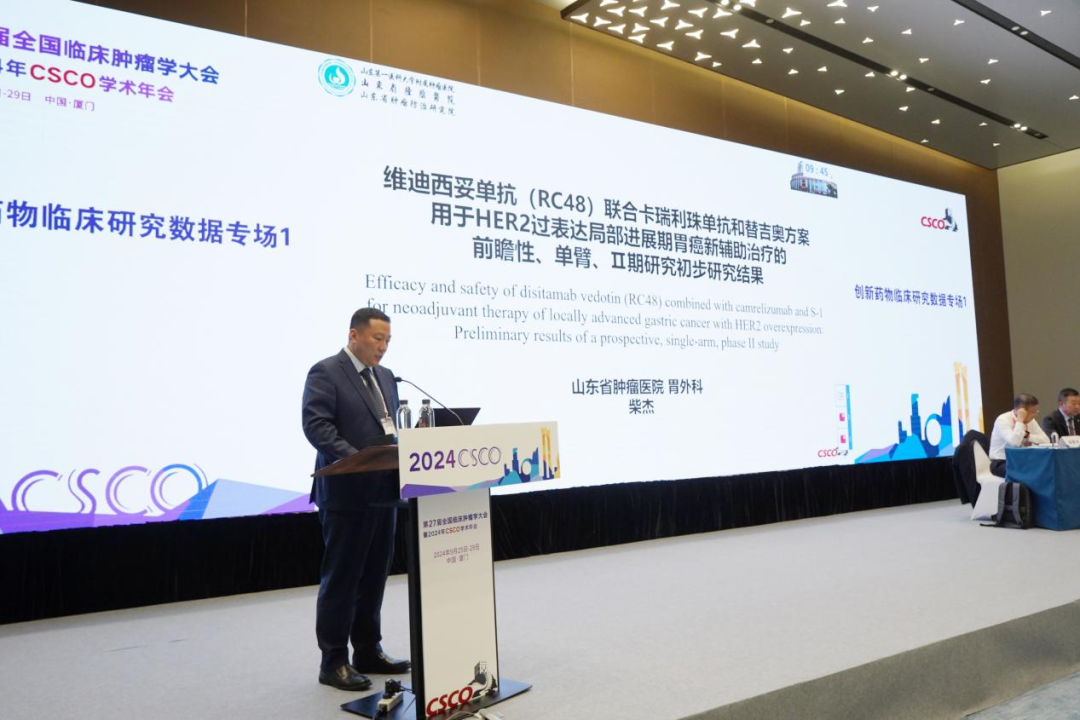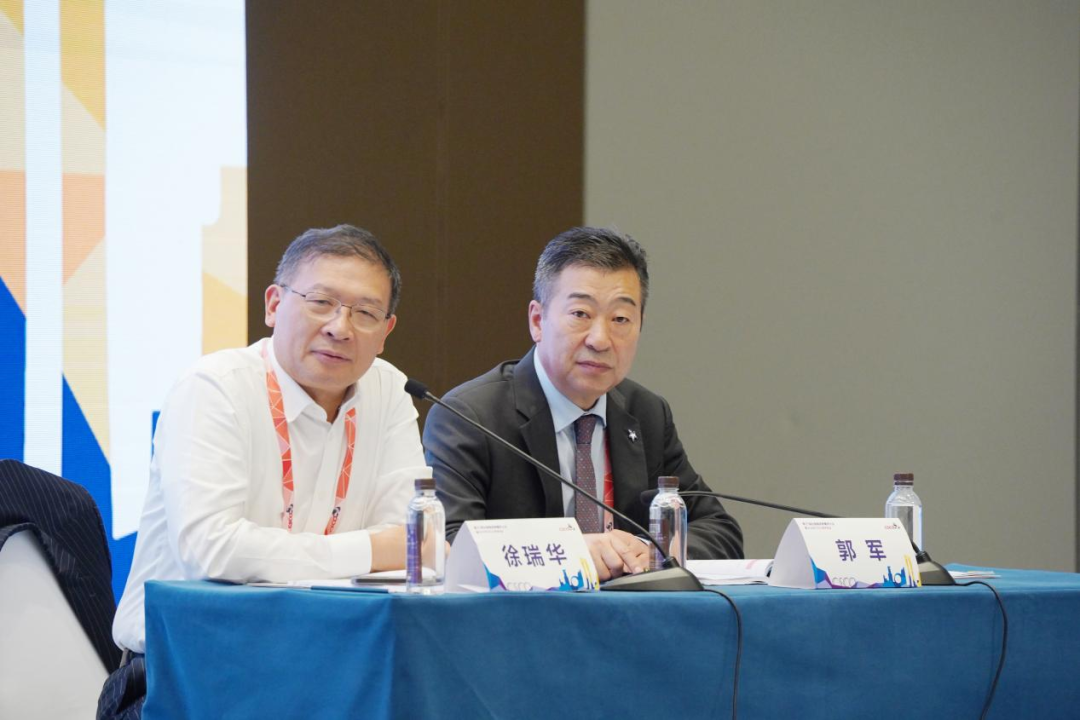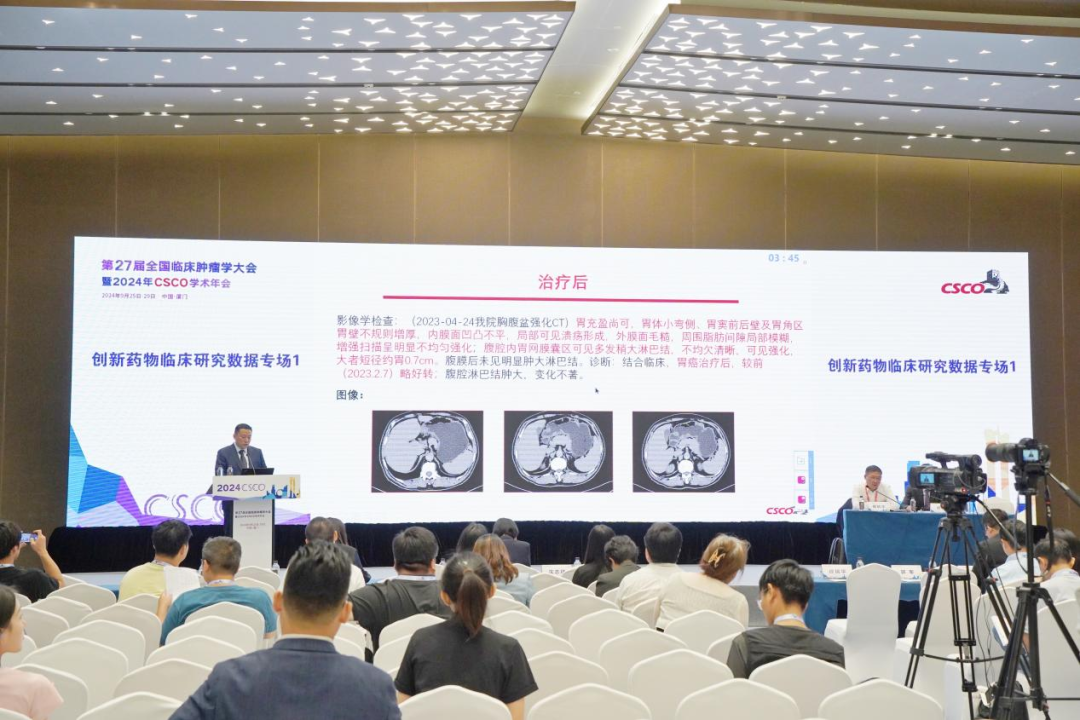
On the morning of September 26th, the 2024 Annual Meeting of Chinese Society of Clinical Oncology (CSCO) was held at Xiamen International Conference & Exhibition Center. In the session of Clinical Trial Data of Innovative Drug that afternoon, Professor Jie Chai from Shandong Cancer Hospital gave an oral presentation on Efficacy and Safety of Disitamab Vedotin (RC48) Combined with Camrelizumab and S-1 for Neoadjuvant Therapy of Locally Advanced Gastric Cancer with HER2 Overexpression: Preliminary Results of a Prospective, Single-arm, Phase II Study. Professor Ruihua Xu from Sun Yat-Sen University Cancer Center and Professor Jun Guo from Beijing Cancer Hospital were the chairmen of this session.


Gastric cancer is one of the most common cancers around the world. Professor Chai pointed out that, in China, more than 40% of the gastric cancer cases were stage III at diagnosis and the five-year-survival rate was 18% among patients with stage IIIC gastric cancer who were the main beneficiaries of the perioperative treatment. The main objective of neoadjuvant therapy is to shrink tumor, lower the stage of cancer, reduce recurrence, improve prognosis, and finally increase long-term survival rates. However, the neoadjuvant chemotherapy has limitations with a poor pathologic Complete Response (pCR) rate of mere 5%~10%. In recent years, promising efficacy has been observed where Disitamab Vedotin or other antibody-drug conjugate (ADC) was used in the later-line treatment of HER2-overexpressing gastric cancer, and there were evidence of synergistic effect from the combination of anti-HER2 ADC and immunotherapy. Therefore, Professor Chai designed the study on neoadjuvant therapy of locally advanced gastric cancer with HER2 overexpression.

As the first attempt to explore the efficacy and safety of ADC in combination with immunotherapy and chemotherapy as neoadjuvant therapy for the gastric cancer globally, this study has been selected to be presented at two world-renowned academic meetings, i.e. 2024 ASCO Annual Meeting and ESMO Congress 2024, before being interpreted at 2024 CSCO Annual Meeting, the most authoritative academic meeting in China’s oncology community. This demonstrates the capabilities of Chinese researchers and the competitiveness of innovative independently-developed ADC of China.
Professor Chai showed the latest data of this study at 2024 CSCO Annual Meeting. As of 20th August, 2024, the study has enrolled 25 subjects. Twenty of them received uncut Roux-en-Y with a R0 resection rate of 100%, among whom 10 subjects (50%) achieved major pathologic response (MPR) including six cases of pCR. The pCR rate reached 30%, representing a promising efficacy. The objective response rate (ORR) in this study was 80% (20/25). Patients who received the neoadjuvant therapy of Disitamab Vedotin combined with Camrelizumab and S-1 experienced significant decrease in pathological T and N stages after surgery with safety under control.
It is noteworthy that in this study, the beneficiaries of anti-HER2 treatment was further expanded from the classical HER2-positive patients (IHC 3+ or IHC 2+ and FISH positive) to all HER2-overexpressing patients (IHC 3+/2+ with FISH test results irrelevant), with the proportion of beneficiaries in all patients increasing to 30% from 10%.
Professor Chai concluded that the Disitamab Vedotin-based combination therapy is an efficacious perioperative treatment option for HER2-overexpressing gastric cancer. Synergistic effect exists in the combination of Disitamab Vedotin and immunotherapy without cross-resistance. The study preliminarily demonstrated that “Disitamab Vedotin + immunotherapy + chemotherapy” could shrink tumors significantly with manageable safety profile. It is believed that as more progress is made in the exploration and study on Disitamab Vedotin-based anti-HER2 combination therapy, a larger population with HER2 overexpression (HER2 IHC 2+/3+) would see benefits.
